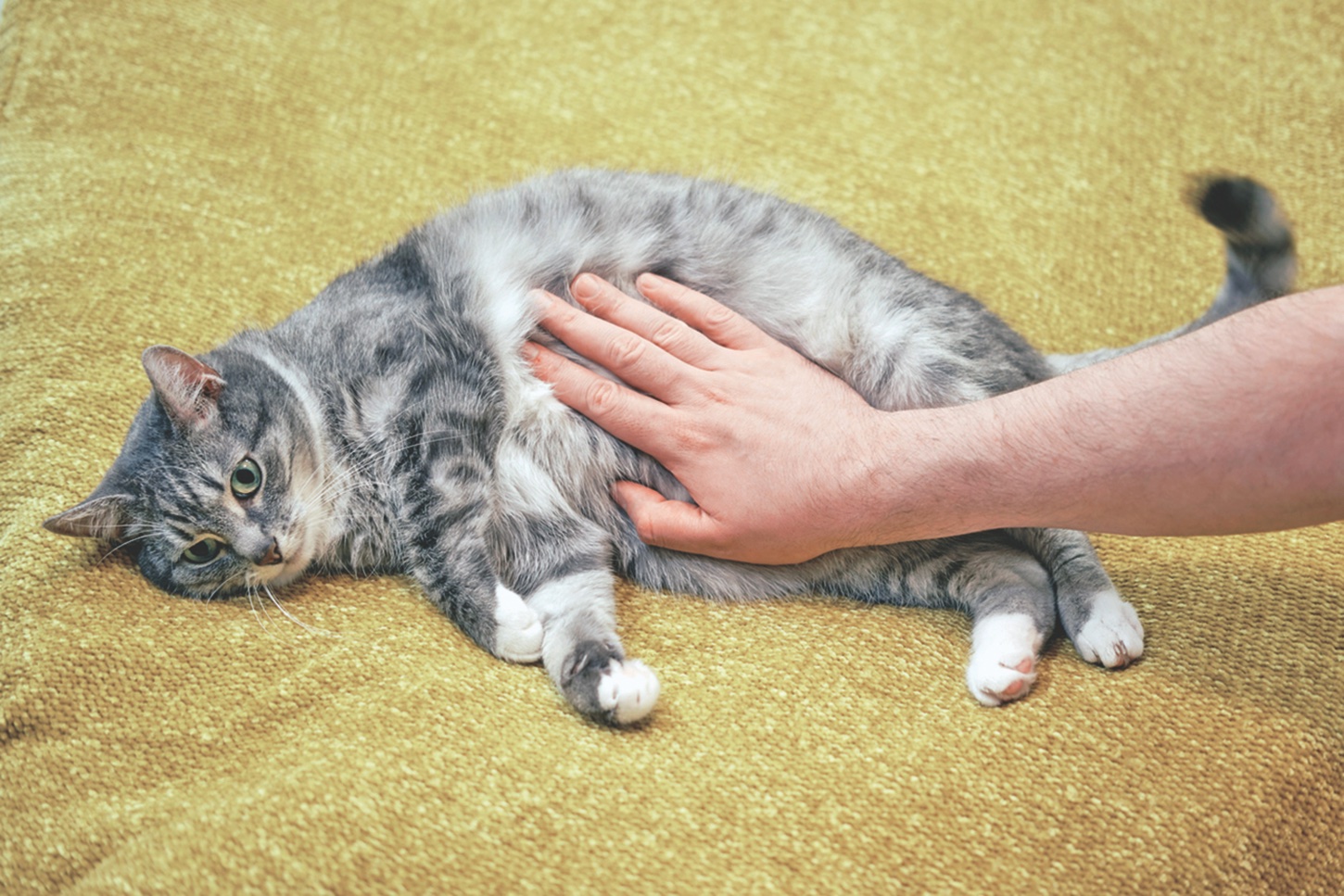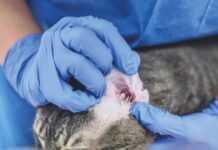If your typically slender, slinky feline starts developing a big belly, you should be concerned. While the causes of abdominal enlargement in cats include conditions like pregnancy, obesity, and severe constipation—none of which are good unless you wanted kittens—a more concerning cause is ascites. Ascites, known as abdominal effusion, means excess fluid in the abdomen.
Possible causes of ascites include:
- Neoplasia (cancer)
- Protein-losing diseases
- Liver disease
- Cardiac disease
- Feline infectious peritonitis (FIP)
- Rupture of urinary bladder, gall bladder, or intestine
Internal bleeding
“When I see a cat come in with ascites, it’s never good,” says Dr. Suzanne Losito, 1988 Cornell Veterinary College graduate and practicing veterinarian in upstate New York. “Whatever is going on will usually have been going on for a while. Most of the cases I have seen have unfortunately turned out to be due to a cancerous process.”
The Diagnosis
Your veterinarian first needs to discern what is causing your cat’s abdominal enlargement. This process starts with a thorough physical exam, typically followed by X-rays and bloodwork.
Once ascites has been identified, an ultrasound is often a useful way to help rule potentially causative diseases in or out. On a plain X-ray, abdominal fluid looks the same as soft tissue, making it challenging to visually assess the abdominal organs through the fluid. This is not a problem with an ultrasound exam, as the sound waves used to generate images with ultrasound travel better through fluid, making full assessment of the entire abdominal contents possible. Ultrasound is also useful to guide the practitioner when aspirating the abdomen to retrieve some of the fluid for evaluation, an important part of the diagnostic process when it comes to ascites.
Cancer
Cancer can cause fluid to accumulate in the abdomen. If it is widespread in the abdomen, it can irritate tissues, which respond by releasing fluid. Cancer can also cause enlargement of the liver and/or spleen that may impede fluid drainage by compressing veins and lymphatics. Sometimes abdominal tumors bleed or rupture, which can result in fluid build-up in the abdomen.
Protein
Protein-losing disease results in a decreased amount of albumin, the protein that is largely responsible for fluid balance in the blood. When albumin is too low in the bloodstream, fluid shifts to other spaces like the abdomen. Protein-losing diseases of the cat include kidney, liver, and gastrointestinal disease. It is best practice to screen for these diseases with regular physical examinations, bloodwork, and urinalysis as directed by your veterinarian. Catching these diseases early and treating them is much better than waiting until the disease is advanced enough to cause ascites.
Liver
Liver disease results in ascites due to decreased production of albumin and/or increased pressure in the portal veins, resulting in fluid leakage into the abdomen. Right-sided heart failure can result in fluid backup into the abdomen, although this is not a common occurrence in cats.
“When a kitten or younger cat comes in with ascites, FIP is higher on my list,” says Dr. Losito. “This is once again not a great situation with FIP being historically fatal, although there is a new drug recently showing promise for treatment of FIP in cats.”
Ruptures
Ruptured urinary bladder, gall bladder, or intestines can release their fluid contents into the abdomen. Internal bleeding from trauma or coagulopathies (bleeding disorders) can cause the abdomen to become distended with blood.
Once you get a diagnosis, further diagnostics, treatment options, and the prognosis will be discussed. Remember, ascites is never good, making proactive health care and wellness screening as directed by your veterinarian an excellent idea.
Dr. Suzanne Losito is a 1988 Cornell Veterinary College graduate and a practicing veterinarian in upstate New York.




